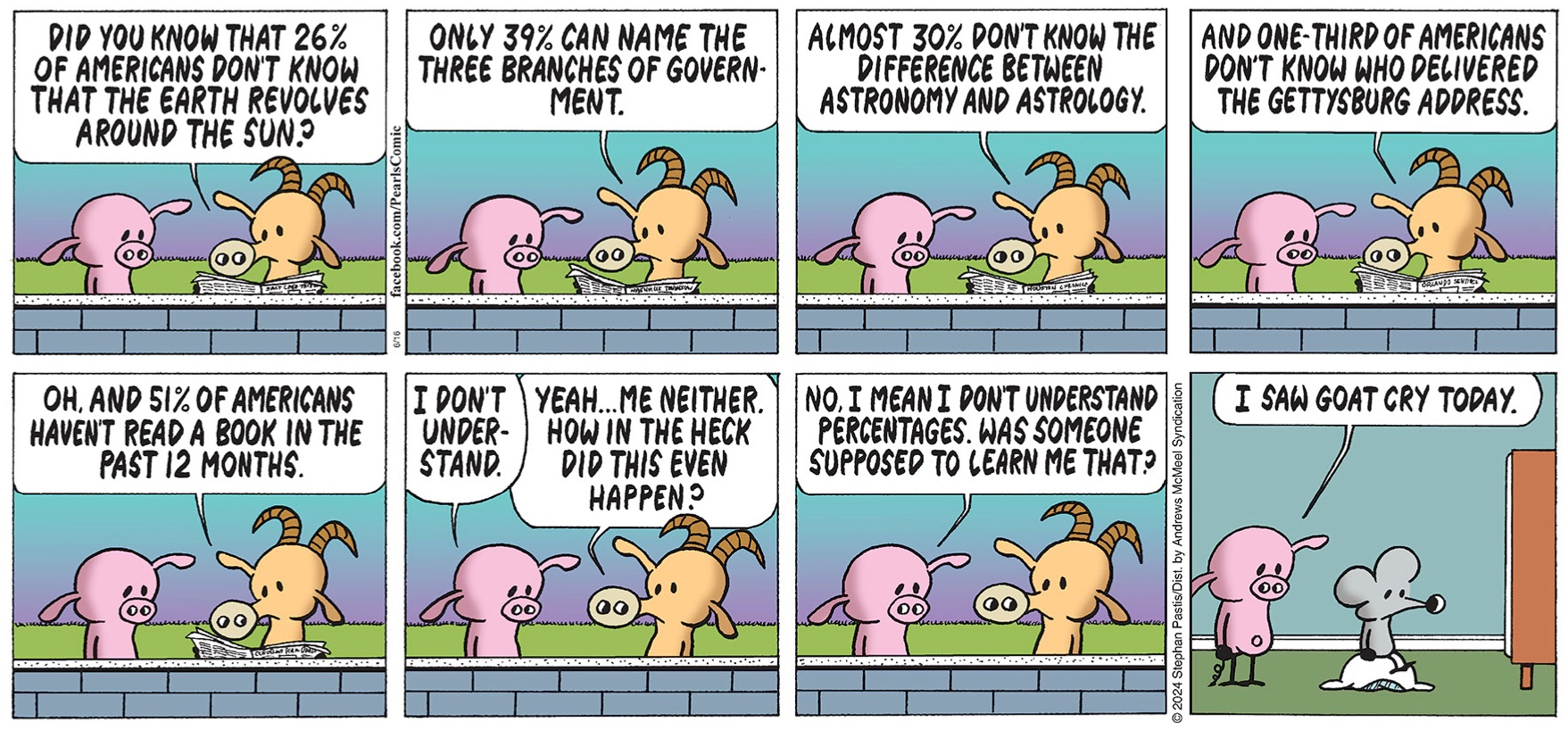this post was submitted on 24 Dec 2024
455 points (98.3% liked)
Comic Strips
14620 readers
1996 users here now
Comic Strips is a community for those who love comic stories.
The rules are simple:
- The post can be a single image, an image gallery, or a link to a specific comic hosted on another site (the author's website, for instance).
- The comic must be a complete story.
- If it is an external link, it must be to a specific story, not to the root of the site.
- You may post comics from others or your own.
- If you are posting a comic of your own, a maximum of one per week is allowed (I know, your comics are great, but this rule helps avoid spam).
- The comic can be in any language, but if it's not in English, OP must include an English translation in the post's 'body' field (note: you don't need to select a specific language when posting a comic).
- Politeness.
- Adult content is not allowed. This community aims to be fun for people of all ages.
Web of links
- !linuxmemes@lemmy.world: "I use Arch btw"
- !memes@lemmy.world: memes (you don't say!)
founded 2 years ago
MODERATORS
you are viewing a single comment's thread
view the rest of the comments
view the rest of the comments

It's ORBITS the sun.
Not "revolves around the sun".
They both orbit a common center of mass called a barycenter. I assume that's what the 26% said.
If you want to make that argument, you have to account for all the other bodies in the solar system... Which I think then becomes a hard problem to predict the movements thereof in the long term?
Funnily enough, the barycenter of the earth and sun is inside the sun iirc
In what context is there a difference? "Orbit" and "revolve around" are synonyms.
"Revolve" is a scientifically accurate word to use.
https://physics-network.org/what-is-difference-between-rotate-and-revolve/#What_is_a_revolution_in_physics